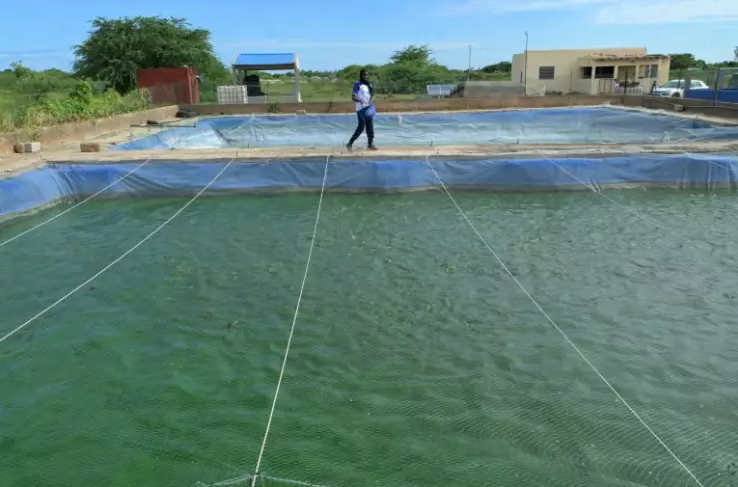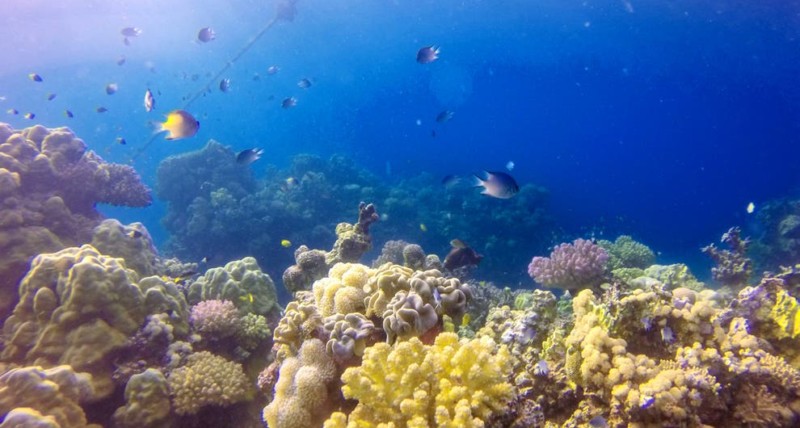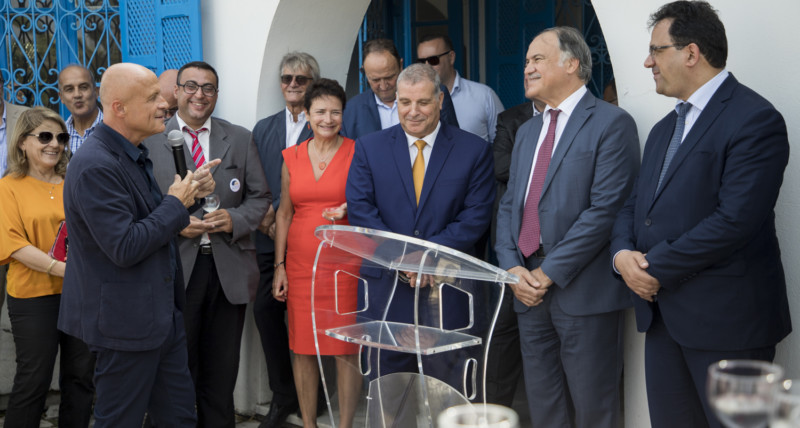In Senegal, the sea is just nearby, but in the small coastal town of Kayar, part of the fish production comes from a fish farm located inland.
Khadidiatou Sar Seck, who founded the facility about fifteen years ago, is a pioneer in this West African country where fish and fishing are part of the national identity.
Fish accounts for over 70% of protein intake for households, and fishing directly or indirectly supports around 600,000 people out of a population of 18 million.
However, the resource that seemed inexhaustible a few years ago is now dwindling due to overfishing, illegal fishing, and climate change.
The volume of catches by canoe has decreased by 58% between 2012 and 2019, according to a report by the Environmental Justice Foundation (EJF). At the same time, exports of fishery products have nearly quadrupled. For Senegalese people, prices are rising, and a staple food is becoming less and less affordable.
Almost every day, reports emerge of migrant boats departing, interceptions, or shipwrecks between Senegal and the Canary Islands, a gateway to Europe. Many are fishermen or residents of coastal towns along the Atlantic Ocean who depend on fishing.
In light of a situation that has stirred public sentiment, authorities say they want to promote fish farming and attract investors.
- A Delay in Africa
“Our goal is for aquaculture to significantly contribute to national fish production and help achieve food sovereignty,” a priority of President Bassirou Diomaye Faye, said Fisheries Minister Fatou Diouf in September during a conference on sustainable aquaculture in Dakar.
Despite its immense potential, Africa accounts for about 1.9% of global aquaculture production, far behind Asia (91.4%), according to a report by the Food and Agriculture Organization (FAO) published in 2024.
Aquaculture has been practiced in Senegal for a long time but has never been successful. Despite the creation of a dedicated agency in 2006, the activity provides barely 1% of the country’s fish production, amounting to 1,804 tons in 2023, of which 56.8% are oysters, 26.5% fish, 12% seaweed, and 4.3% mussels.
Challenges abound for those entering the industry. Senegalese people are unfamiliar with the product, obtaining quality stock is difficult, feed for farmed fish is expensive and must be imported, access to land is a challenge, and marketing is complicated, Ms. Seck notes near ponds bustling with thousands of catfish and tilapia.
Her products are sold directly to individuals, wholesalers, or fish markets.
Samba Ka, director of the national aquaculture agency, has high ambitions. “Everything is possible if investments and partners come through,” he believes.
“Everyone needs to get involved, organize fairs, cooking workshops, invite chefs, so people know that this is something consumable, that is good for health and nutritious,” he says.
- Ambitions
The agency hopes for a production of 65,000 tons by 2032 and the creation of about 50,000 jobs.
In his large hangar about a hundred kilometers southeast of Dakar, Demba Diop specializes in the production of fingerlings, young fish intended for farming and a crucial link in the chain.
He had to “start from scratch” and draw on his own funds to create his farm because banks did not trust him, having little knowledge of the industry, he explains. Other barriers include the cost of feed and the availability of quality fingerlings, both of which are imported from Europe, he says.
On the quay of Soumbedioune in Dakar, where fishermen pull their colorful canoes ashore, 36-year-old Olivier Gomes rules out turning to aquaculture. “We have enough fish in our seas, but unfortunately, it’s the foreign trawlers that deprive us of them,” he says.
He also notes a difference in taste with sea fish and fears price competition. He envisions taking the path of exile to Europe to earn more money.
In contrast, 54-year-old Alioune Badara, a former fisherman who lived in Europe for several years before returning, is tempted. “Today, there are no more fish in the sea. If I receive financial support for fish farming, I would be very interested, in addition to my agricultural activities,” he assures.
Soucre: actu.orange




